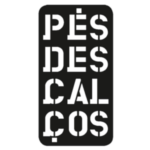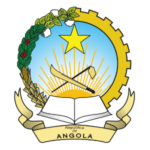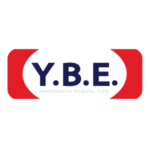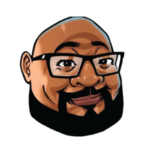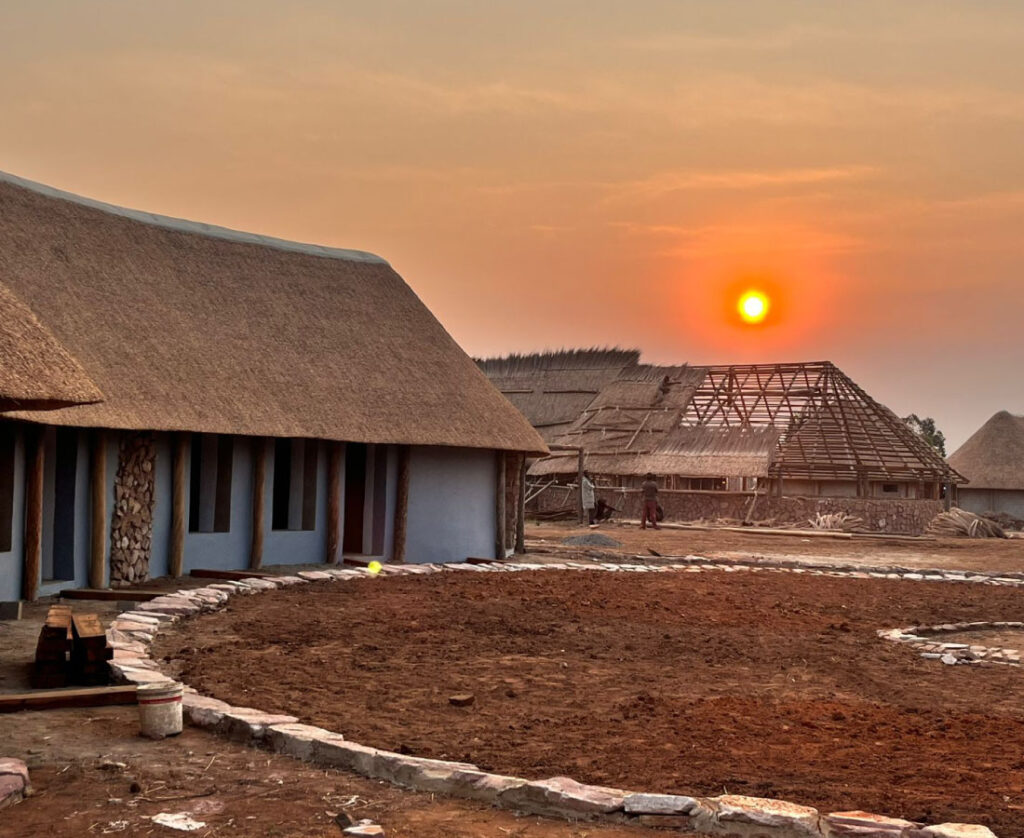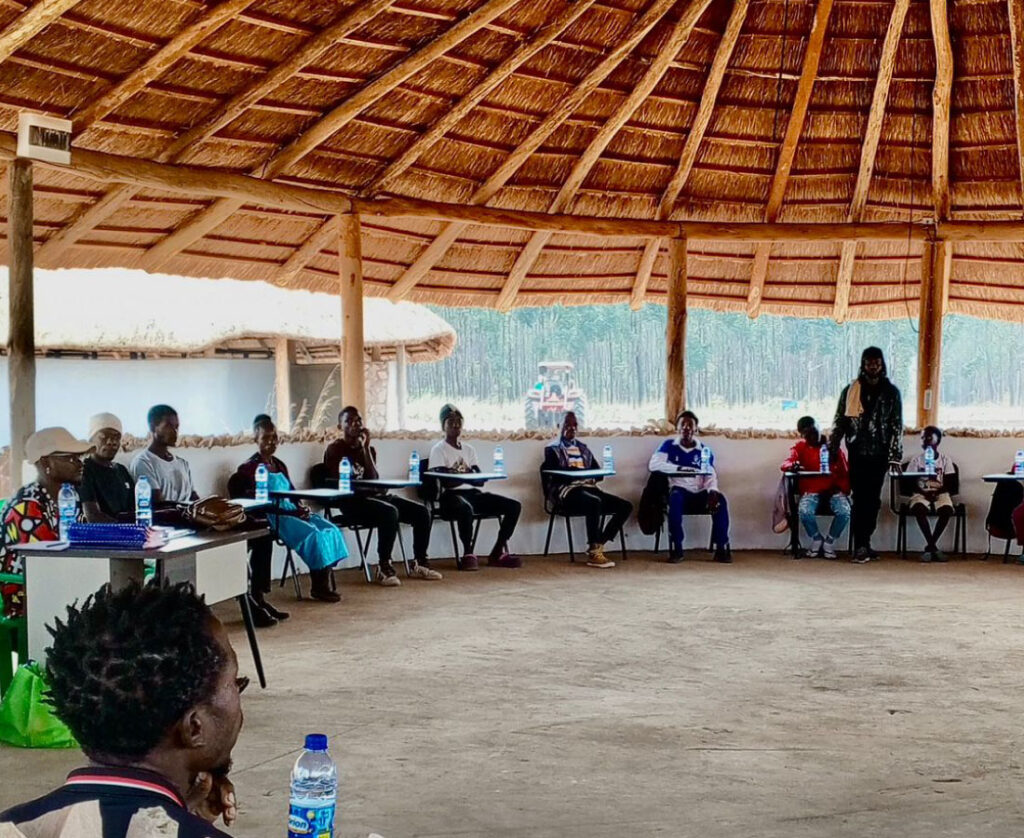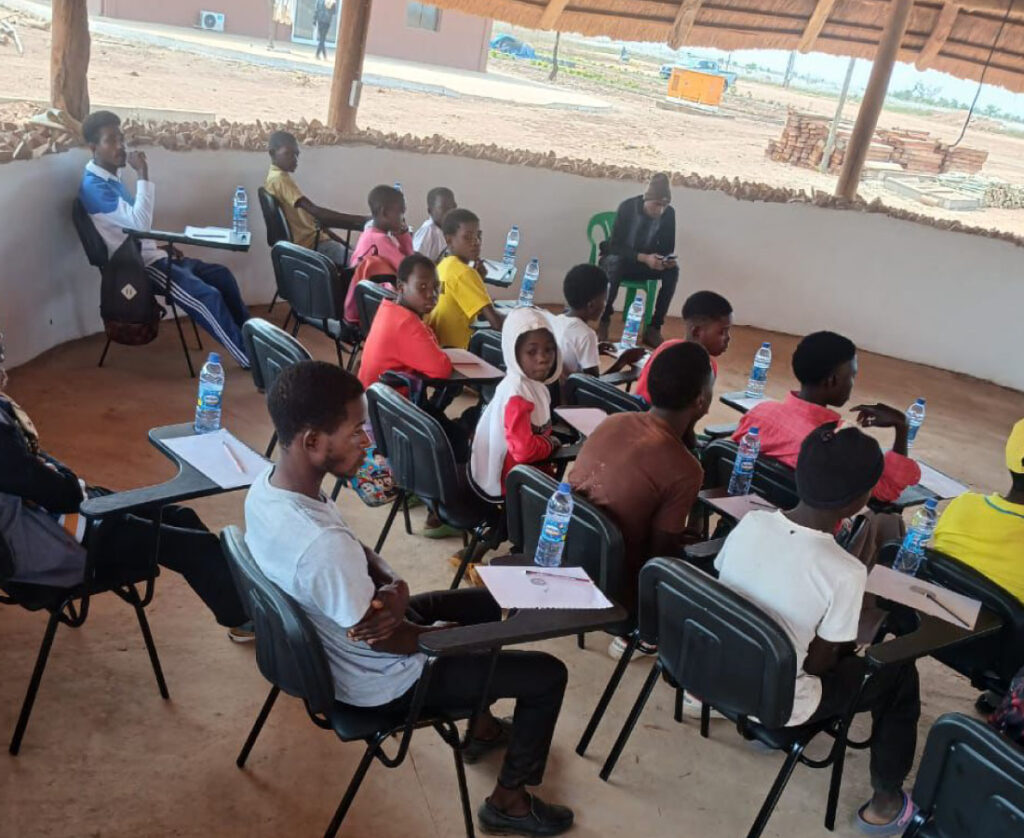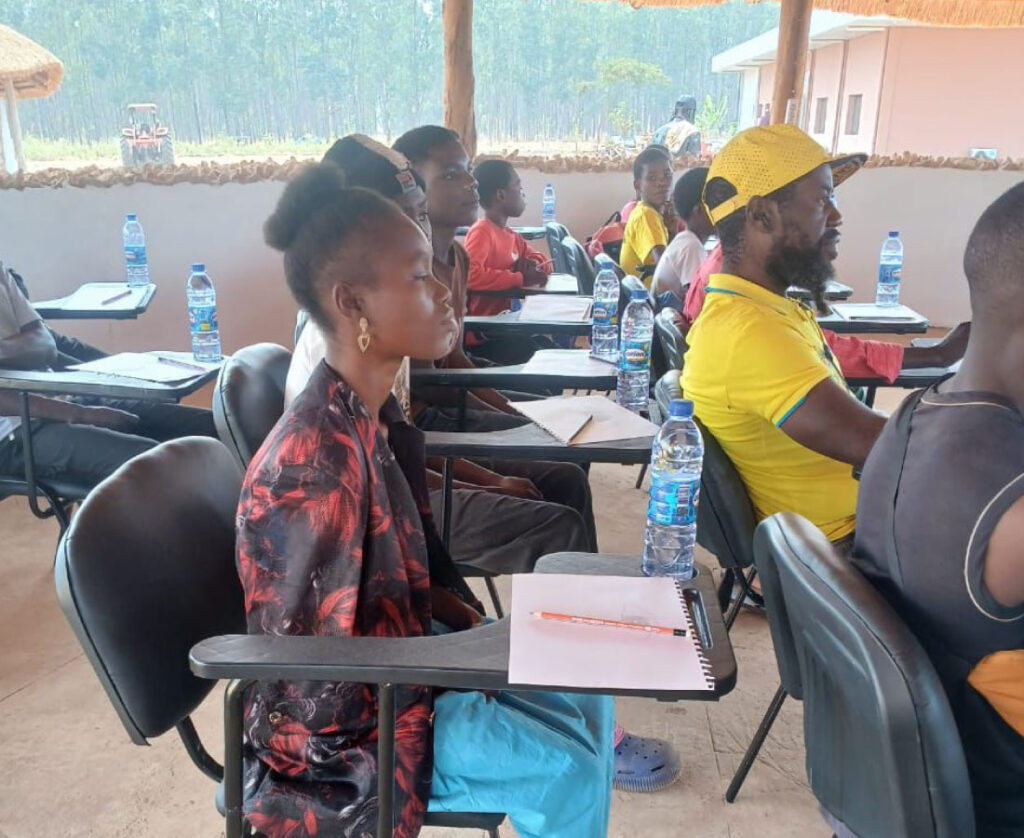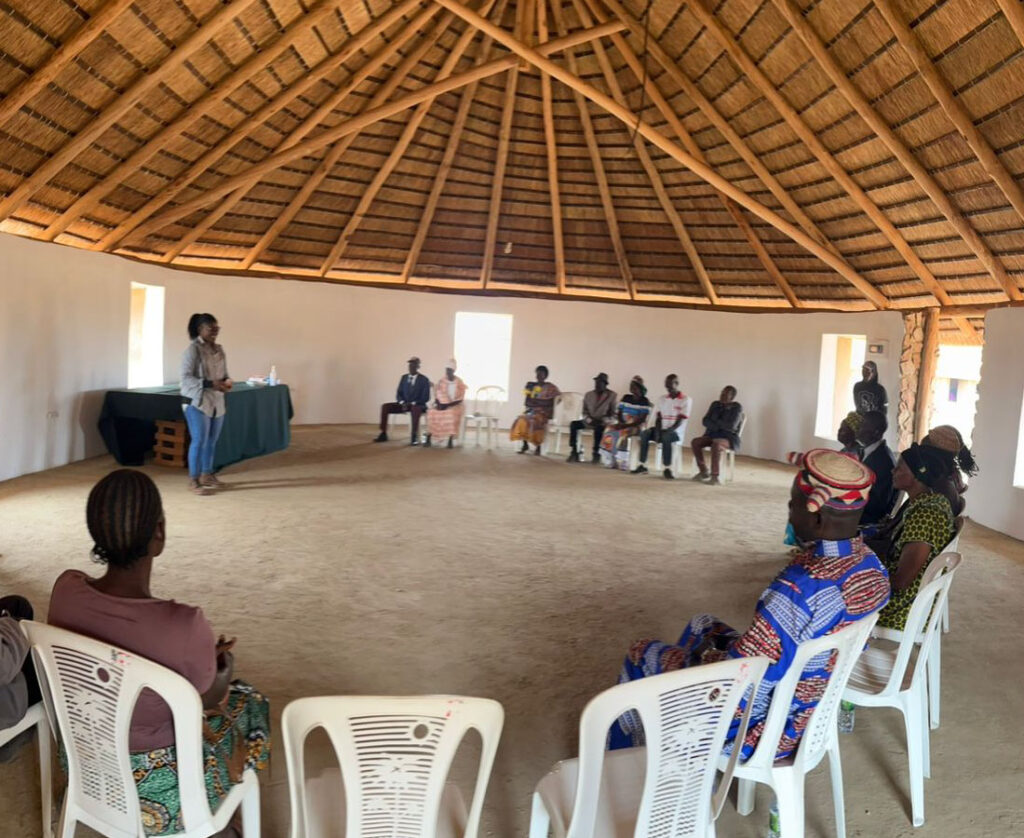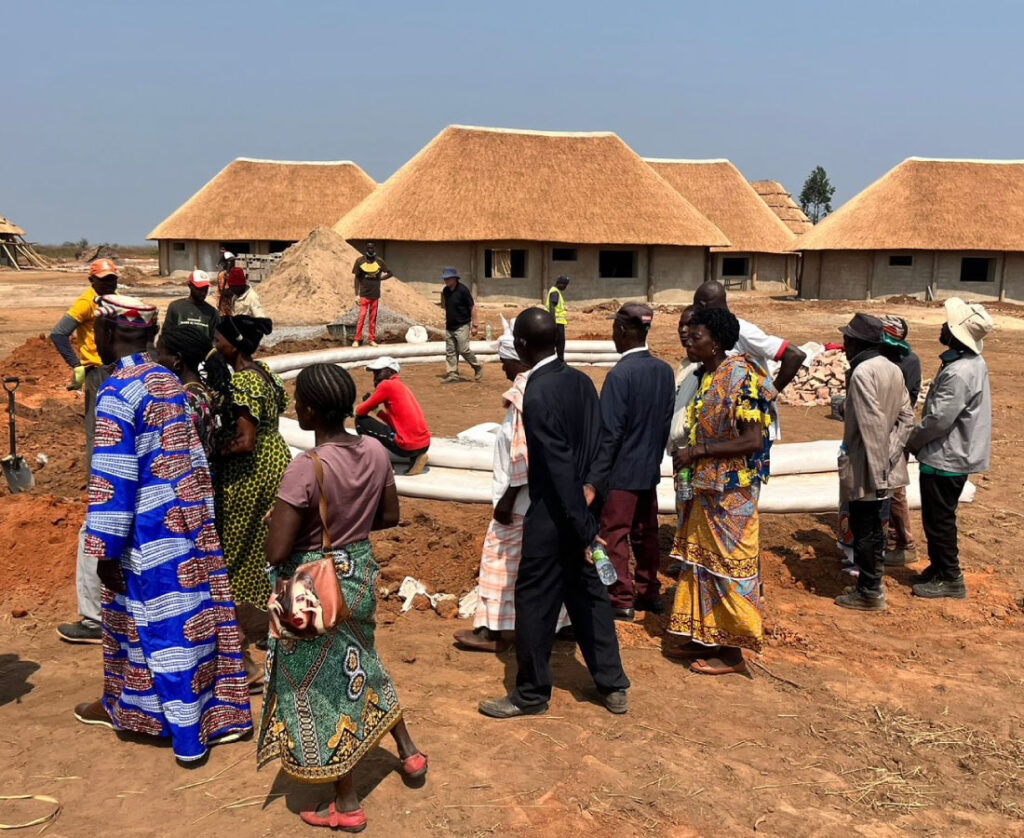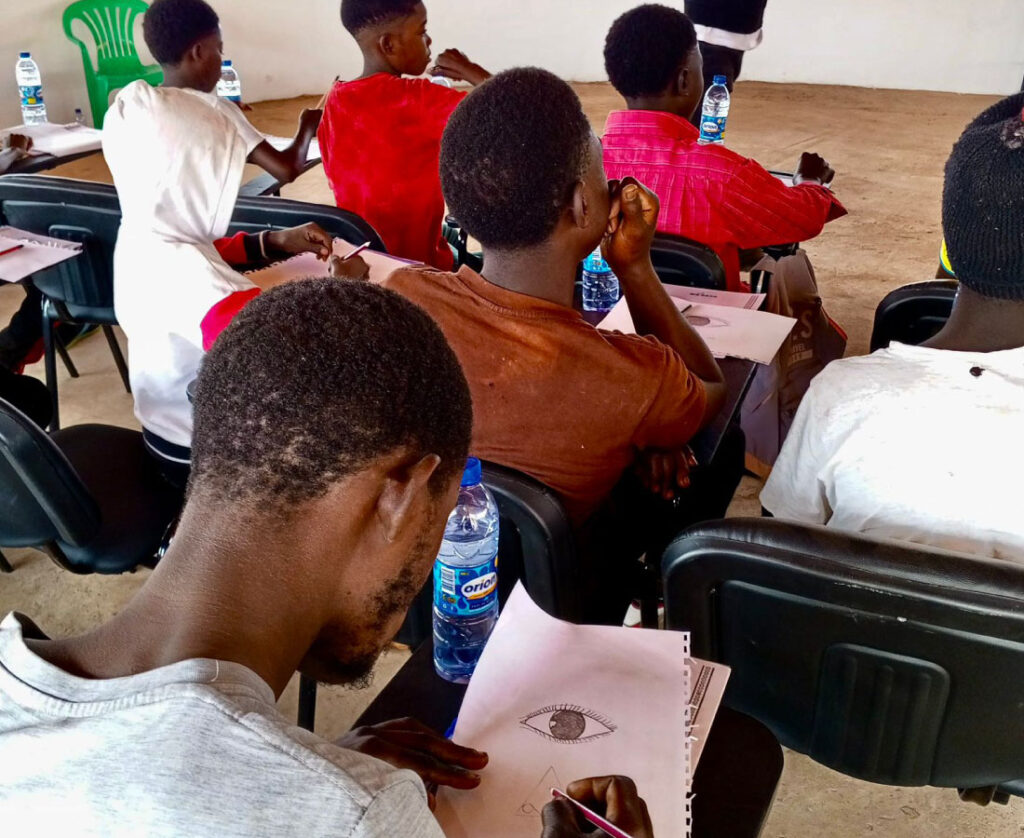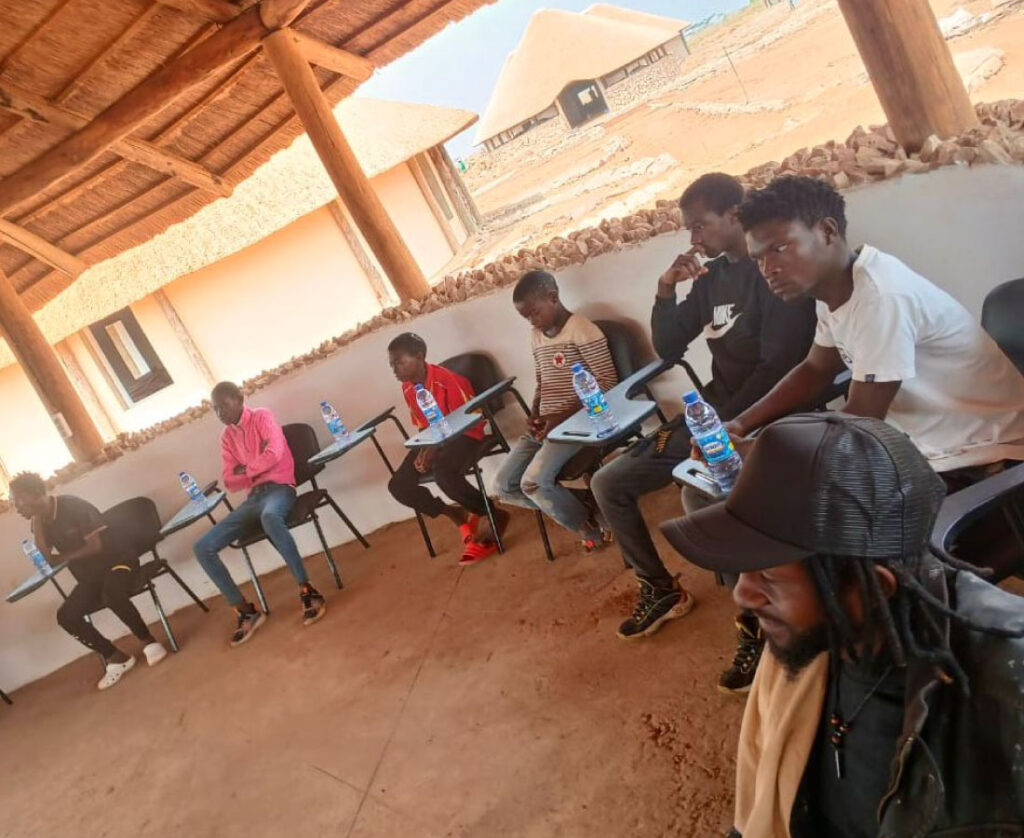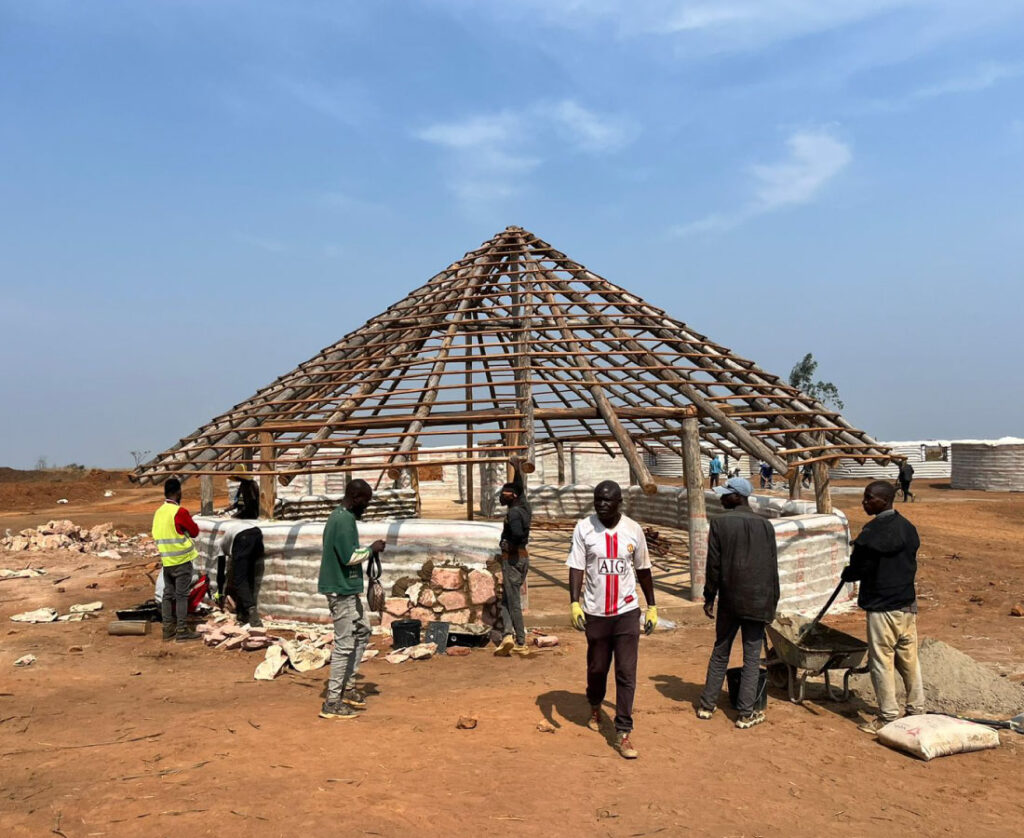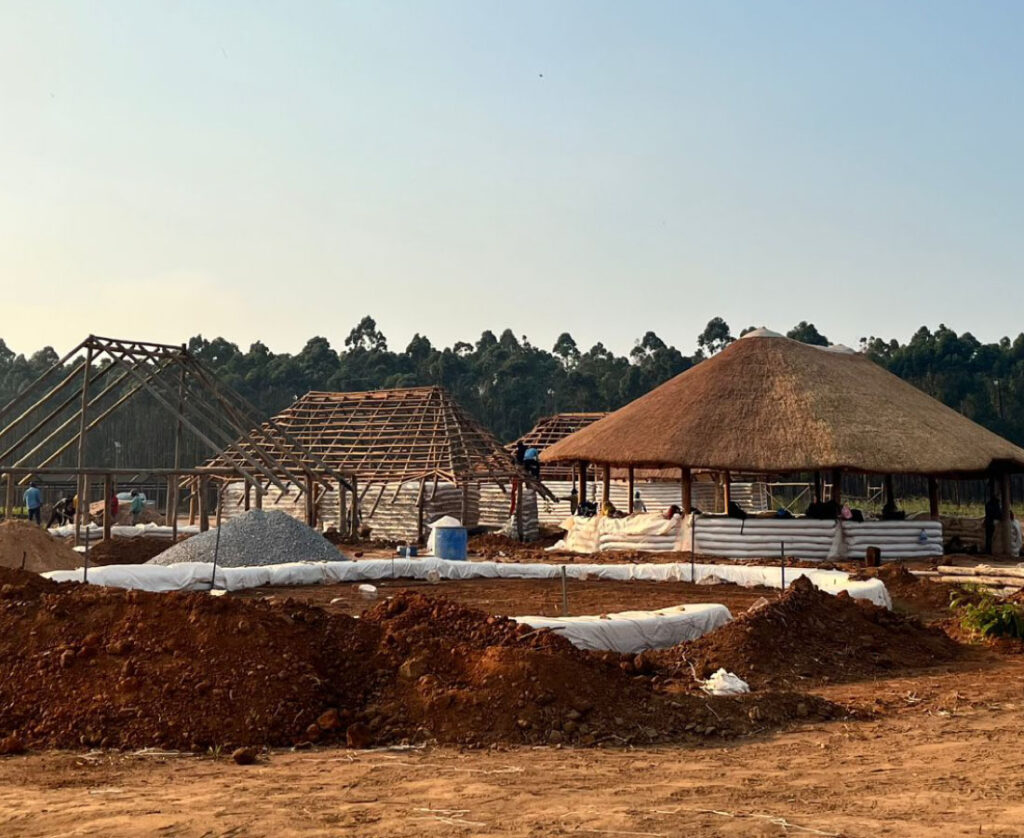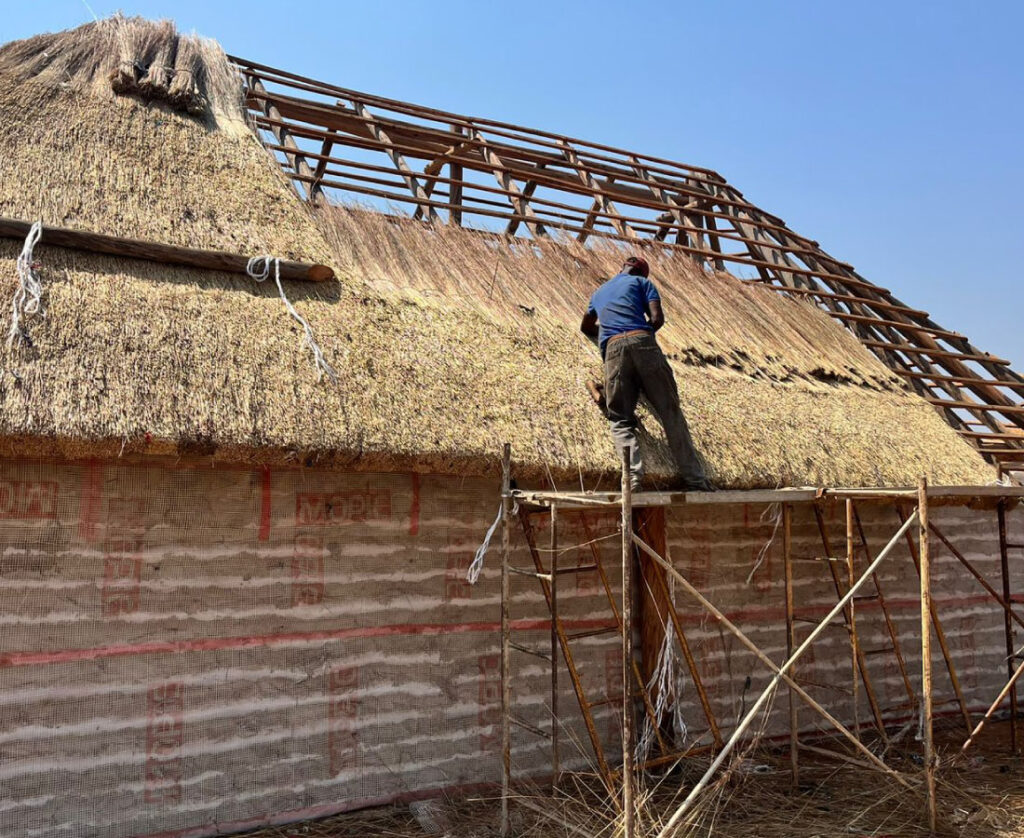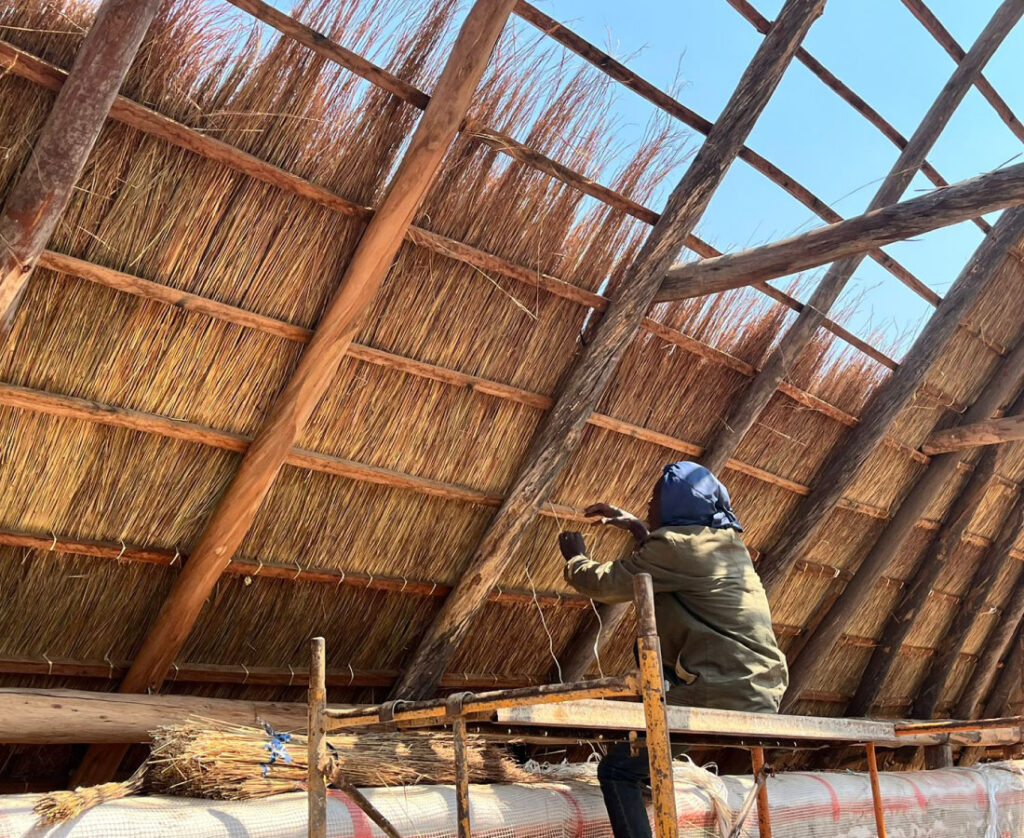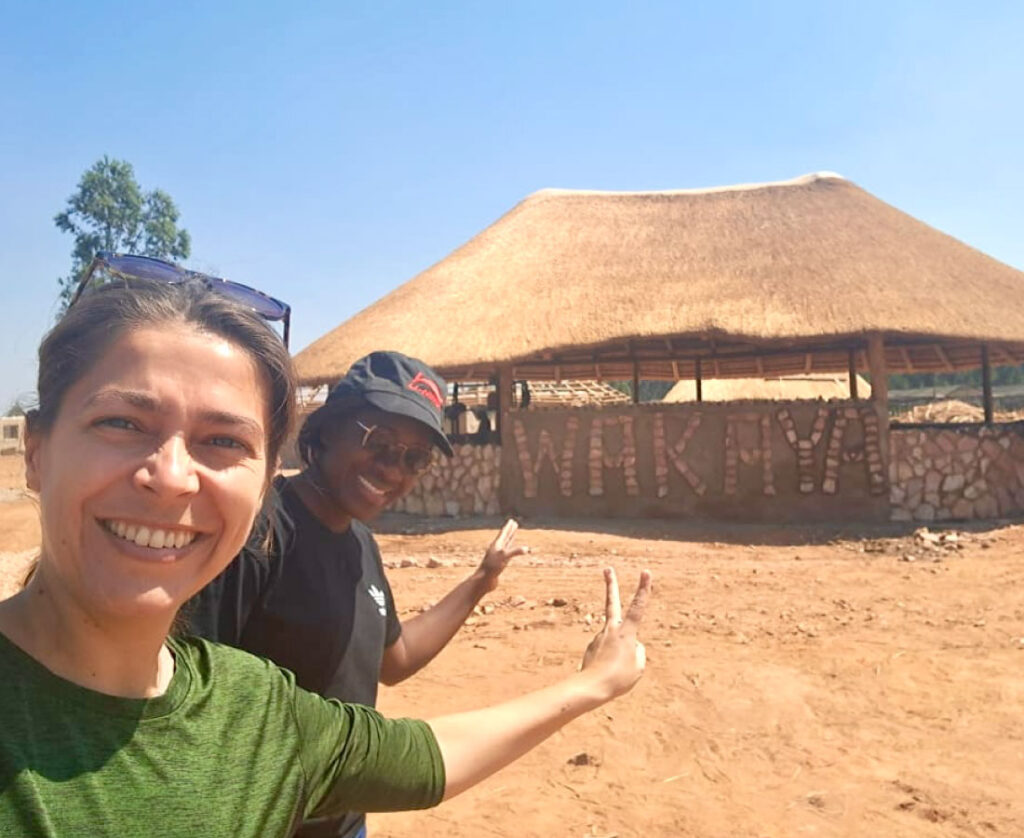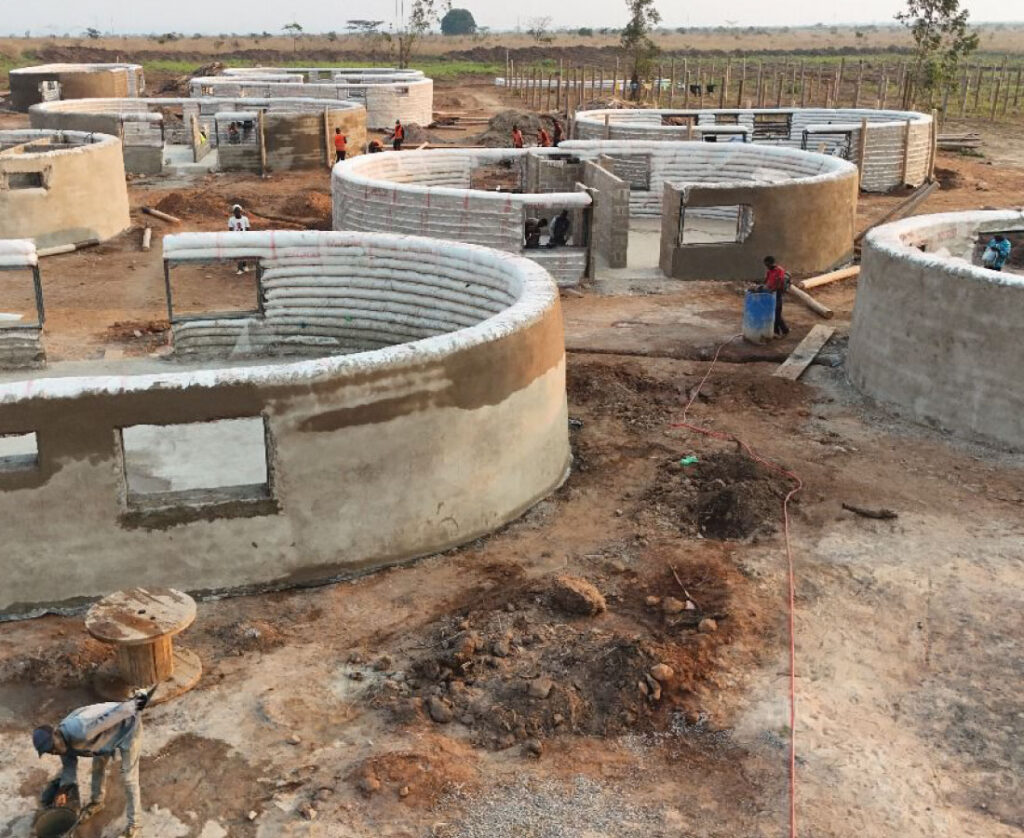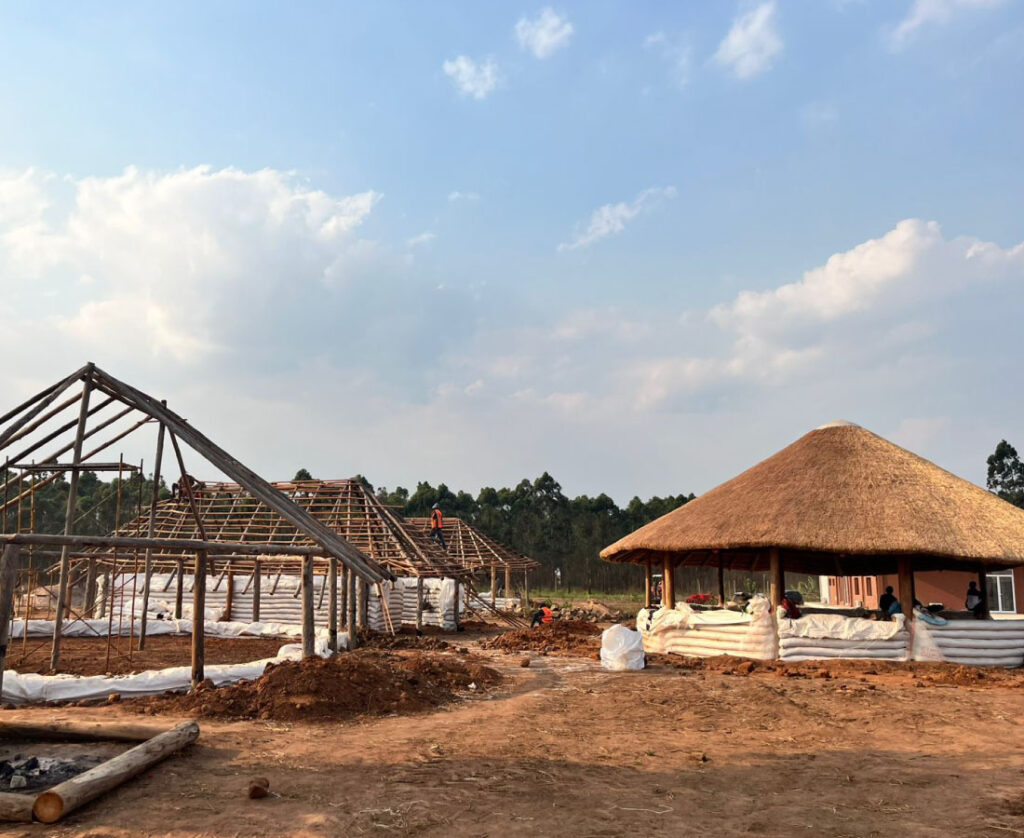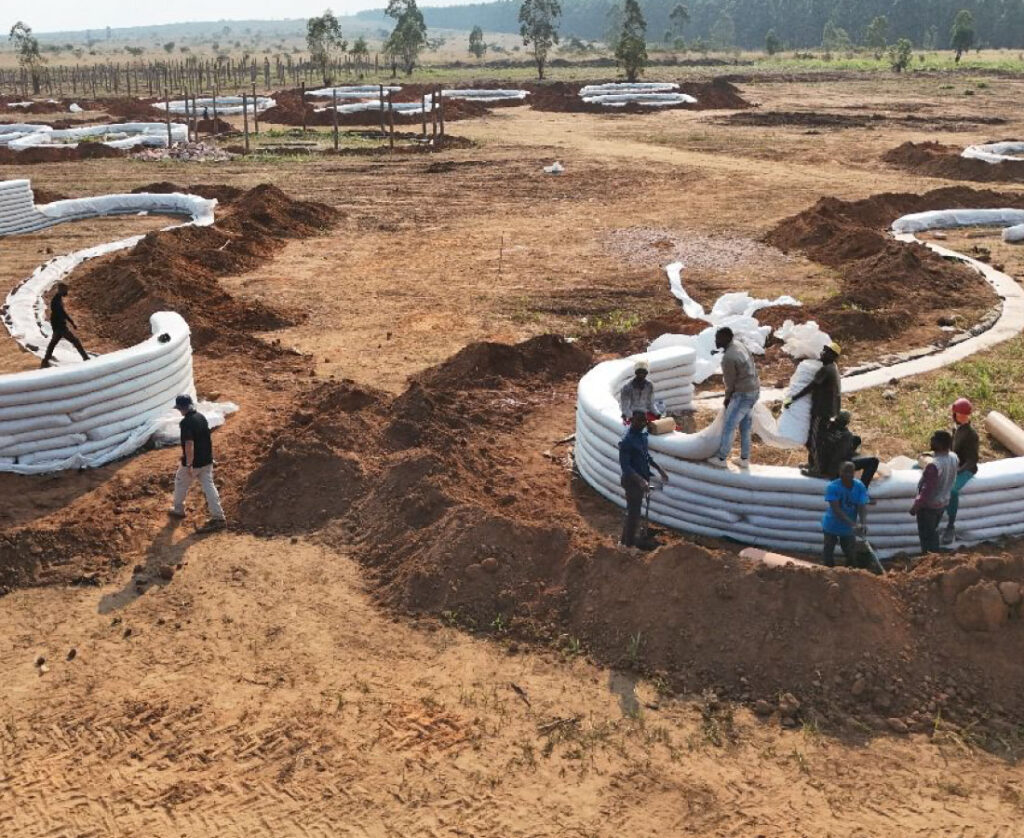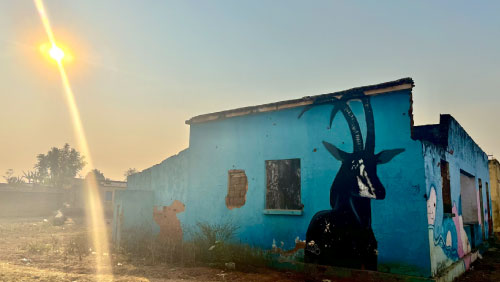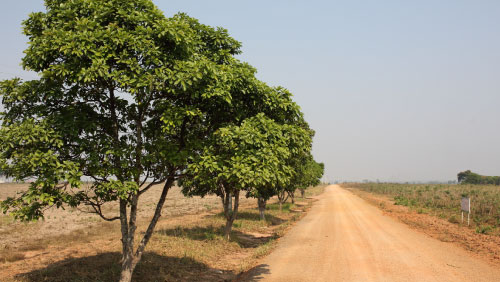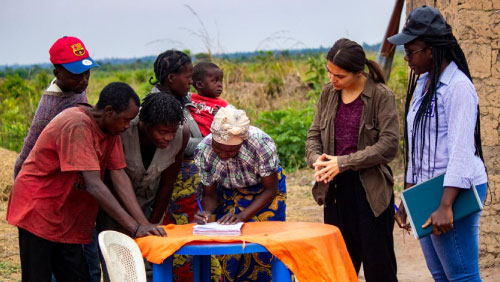Wakaya
Campus
Wakaya Campus
Wakaya Camp will be the hub for Wakaya’s community development work and a center for learning through hands-on activities and creative skills development.
The original vision for the Camp came from Wakaya founder and board member Yoav Ben-Eli, who wanted a central place for community activities and development work in Malanje.
The Camp has offices, a digital center and library, three workshops / classrooms, a clinic and accommodation units, as well as a dining room and kitchen which will be used for events and people staying over onsite.
Campus Structure
Featuring classrooms, workshops, a library and digital centre, a kitchen and dining hall, as well as sports and social spaces, a year-round schedule of activities will focus on our education, environment, and economic empowerment vision.
There are also accommodation buildings for visitors, where we will host artists in residence, specialist trainers and volunteers from partner organisations and companies wishing to come to join our activities and help with community work.
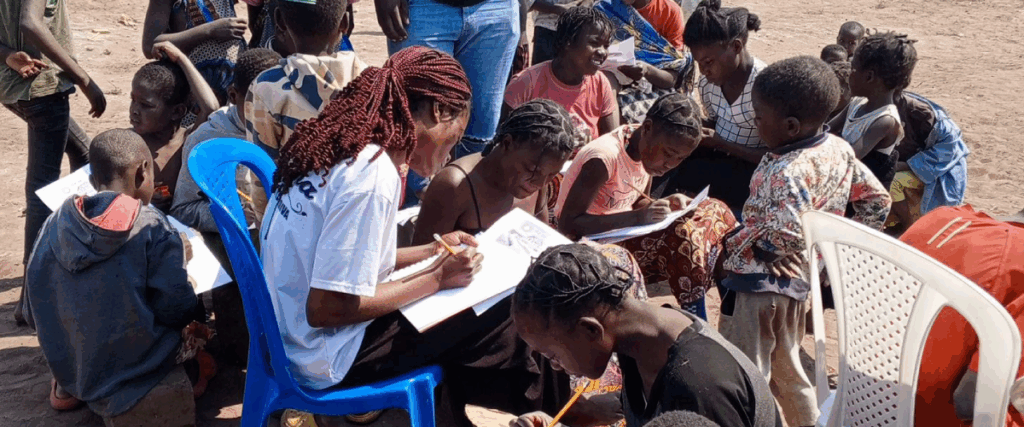
Campus Activities
Wa’kaya is determined to fill our Camp with life and activities.
Training and skills building, as well as creative activities and general fun for our communities and visitors. Somewhere people want to come, and feel inspired while there.
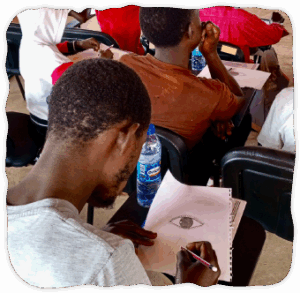 Our first small project onsite was working with the Angolan MAL art collective to create two months of art classes for the youth from our communities.
Our first small project onsite was working with the Angolan MAL art collective to create two months of art classes for the youth from our communities.
Creativity and a chance for personal expression can seem like the last thing people from a rural poverty background need, but we’ve found the opposite to be true. Talent can be found anywhere, and bringing colour and beauty into young lives can bring with it pride, joy, storytelling and purpose.
As our Camp buildings were being built we knew it was important to start including our community partners in the vision and direction of the Camp. To bring them to the site and create some things together. And decorating the Camp walls was our first thought.
35 students from our seven communities came three times a week to be taught drawing and art techniques by our amazing team of artists Carlos Bento, Wilson Bafox, Tonilson Francisco, Stay Artes and Felizardo Pereira.
The artworks will be hung all around Camp and we know this is the start of something bigger.
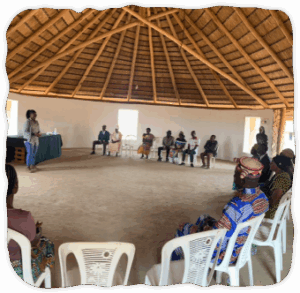 Our Camp has a beautiful, purpose built amphitheatre ready for meetings and performances.
Our Camp has a beautiful, purpose built amphitheatre ready for meetings and performances.
We know that theatre is an excellent way to share messages and bring new knowledge and stories to communities where literacy is a challenge, and are working with a local theatre company in Malanje, as well as children themselves, to create informative and entertaining theatre productions with a message.
The first show will be focused on Wakaya’s Trees for Life book, bringing a message around the importance of trees, what they bring to us and why nature protection is important.
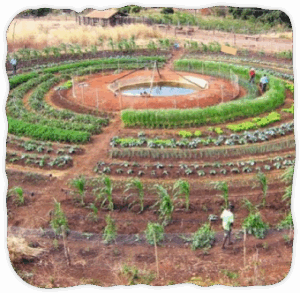 A Mandala garden is an ancient, holistic permaculture concept that organizes plants around a central point, incorporating keyhole-shaped beds, to maximize space and enhance biodiversity. The overall aim is to create harmony between the plants, soil, and water, fostering regeneration and creating a self-sustaining system for producing food, herbs and flowers.
A Mandala garden is an ancient, holistic permaculture concept that organizes plants around a central point, incorporating keyhole-shaped beds, to maximize space and enhance biodiversity. The overall aim is to create harmony between the plants, soil, and water, fostering regeneration and creating a self-sustaining system for producing food, herbs and flowers.
Wakaya Camp will have at least one mandala garden, the vision of our Agriculture Project Manager Celsiana Da Silva, who has build gardens in different locations around Angola in the past. We’ve hired 6 people from our communities to help lay it all out and learn the technique, with a view to creating something similar back in their villages in the future, as well as help to maintain ours.
Step one was finding bamboo around Malanje to chop and use to construct the garden beds, and plant the seeds to relocate into the garden beds when the rains come. The garden adds to our new and more holistic and sustainable agriculture techniques project, and the vegetables and herbs grown there will be used in our Camp kitchen.
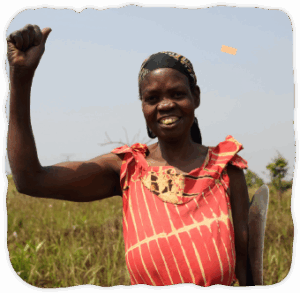
Sports are an excellent way to bring people together, to play or watch and cheer on a team. Fun but also a way to teach teamwork, cognitive ability and share messages and trainings while people are gathered in one place.
The Camp has a football pitch which we hope to put to good use with not only football matches but also other sports which will be used as a means of sharing and outreach. Creating a program of inclusive games will be central to our activities.
Join Us in Transforming Lives
Join us in our mission to bring opportunities and transformation where they are needed most. Together, we can create a brighter future.
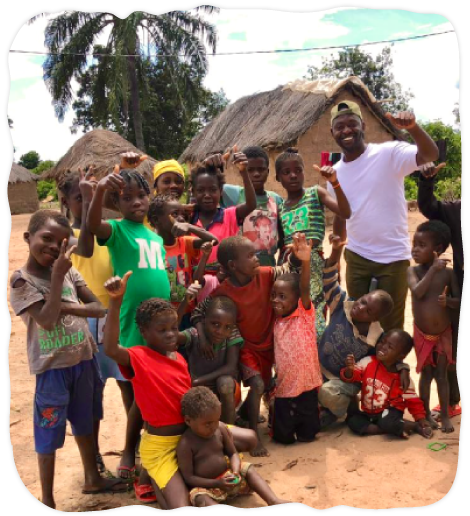
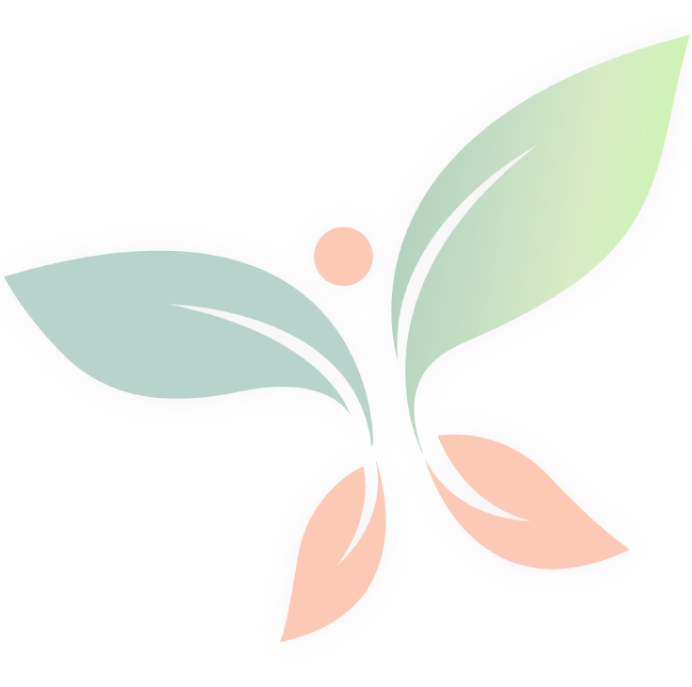
Community Ownership
Putting up buildings does not automatically mean they will be used, and we know it is important that our partner communities have ownership over and a special relationship with our Camp.
Already involved in the work crews for the buildings and gardens, with some community members being hired to help, we know we will need to create a place where people feel comfortable coming and excited to be involved.
Classrooms and workshops have trainings and microenterprises, the library is a central focus for storytime and literacy, the digital centre brings computer skills and AI to students, and the gardens and clinic will also be an outreach opportunity for trainings.
Our art classes were the first use of our classroom jango, and the artworks will be displayed all around the Camp, our first step in creating a vibrant, creative educational place.
Wa'kaya Camp Donation
Wakaya is a not for profit organisation where all money raised goes directly to projects and operations.
This balanced approach ensures that we can not only deliver immediate services but also build a strong, resilient foundation for lasting change. We have developed a three year strategic plan which we are happy to share, and will be providing quarterly updates and an annual report for all donors and supporters.
85%
Projects are the heart of our work.
Our budget is project based, with donors funding all aspects of a project, including project management and expenses within the project, like transport, petrol, computers for the digital project, nursery tools and seeds and plants for the community nurseries etc
We have structured our finances to ensure we over all project costs, with some extra where needed for emergencies and unforeseen costs as the projects develop.
10%
These essential overhead costs allow us to operate effectively and responsibly.
This includes expenses for example accounting software, insurance, office supplies, rent, and critical administrative staff that ensure we remain a sustainable and accountable organization.
5%
We invest a small portion of funds to grow our community of supporters.
This allows us to reach new donors through community events and donor events, grant applications and digital outreach, ensuring we can continue and expand our vital work for years to come. It is important we diversify our fundraising and always seek new partners from different sectors.
Join Us
As Wa’kaya gets established, we are seeking partnerships with companies and individuals to help deliver our projects and vision.
Partner With Us
Invest In Us
The workforce of tomorrow needs education and opportunities, and Angola’s landscape needs healing so nature can protect us all in the future.
Become a Volunteer
Join us in our mission to bring opportunities and transformation where they are needed most. Together, we can create a real change.
Who Help Us
We are so thankful to already have been given support from many generous donors & collaborators.
